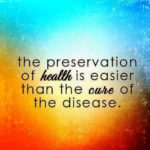Overview
Sunlight provides plants the energy to sustain and grow, but it also has a significant impact on the health of humans too. For the most part this is positive, providing us with essential nutrients and stimulating melanocyte cell growth. However, soaking up too much sun can also be very dangerous. Overexposure can result in long-term skin damage or even cancer. With summer in full swing, we plan to give you a clear understanding of the benefits and risks involved with taking in Sunlight.
Benefits of Sunlight
Although humans are spending more and more time inside, sun exposure is essential to keeping your body healthy. You might be surprised to learn how many processes the sun effects inside of your body. We have gathered a few of them for you here:
Vitamin D Production
Vitamin D, sometimes referred to as the “sunshine vitamin”, is an essential part of every person’s health. While you can get this vitamin in pill form, the cheapest way to get enough of it is by exposing your skin to the sun. As the sunlight hits your skin, your body reacts by increasing the production of melanocytes, which are responsible for vitamin D production in your body. These melanocytes also produce melanin, the naturally occurring chemical that makes your body tan.
Boost Immune System
Research has shown a positive relationship between Melanocyte production and T cell production. T cells are lymphocytes(white blood cells) responsible for containing, killing, and removing pathogens from your body. Pathogens, simply put, are bacteria or viruses that make you ill. This means that by getting more sun you increase your body’s ability to fight off infection.
Aiding Depression
Serotonin is a key hormone to keep in mind if you are battling with depression. It is nicknamed “the happy hormone” as many anti-depressants work directly in the brain to encourage serotonin production or reception. However, one easy way to increase serotonin production is by spending more time in the sun, and possibly decreasing the impact of your depression.
Weight Loss
Because sunlight has a significant effect on depression, not getting enough of it can cause you to gain weight. Hunger is controlled by a part of the brain called the hypothalamus. By depriving your body of the sunlight that it needs, your hypothalamus can become less active, causing you to feel the need to eat more food.
Reducing the Risk of Type 2 Diabetes
Vitamin D plays a large role in the production of insulin and insulin resistance has been noticed to have a positive association with vitamin D deficiency. This means that if you ensure that you are getting enough sunlight, you can reduce your risk at developing Type 2 Diabetes.
Reducing High Blood Pressure
Vitamin D deficiency has also been linked to heart disease, particularly by causing an increase in hypertension, or high blood pressure. For this reason, Vitamin D supplements often have a picture of a heart on them, as they are often suggested to patients by cardiologists.
Risks of Sun Exposure
Although there are significant health benefits to sunlight, there are also a few risks involved. Fortunately, we have listed them here for you.
Carcinoma(Skin Cancer)
One of the most important things you should consider before sunbathing is skin cancer. There are factors that can increase your risk of developing skin cancer, which are primarily genetic. If you have a history of skin cancer in your family, you certainly should discuss your options for sunbathing with your dermatologist or trusted medical care professional.
Benign Tumors
Non-cancerous tumors can also be created due to sun exposure, these can appear as moles or as small lumps on the surface of the skin. Once again, there are genetic factors that might increase your exposure to the sun.
Wrinkles
Sunlight can have a significant impact on the destruction of elastic and collagen tissues in the skin. This means that extended exposure to the sun can increase the likelihood of you developing wrinkles at a younger age.
Freckles/Discoloring of the Skin
Some people who have freckles have reported that they become considerably more noticeable with increased sun exposure. Additionally, in repeat instances sunburn mottled pigmentation can occur. This causes an irregular pattern to take over the effected area.
Conclusion
For best results when sunbathing, most dermatologists recommend that you limit yourself to 10-15 minutes of sun exposure per day. Repeated, small-session exposure is often more effective at maximizing the rewards than a single long session. If you know that you are going to be out in the sun for more than this amount of time, make sure to bring your favorite sunscreen along with you.








